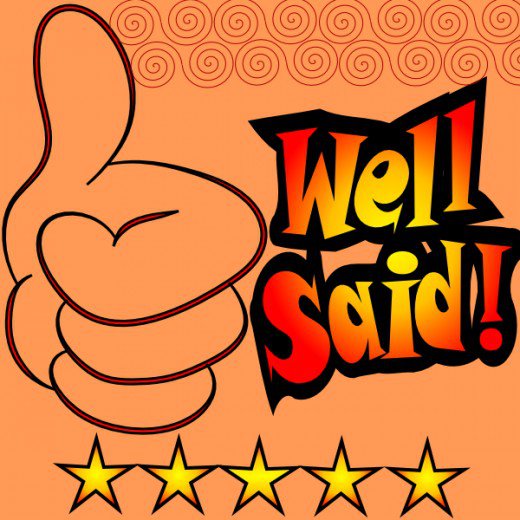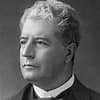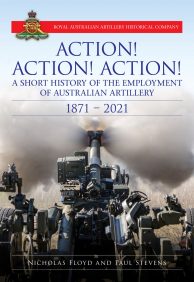
Australians shouldn’t recoil from No triumph.
By GREG SHERIDAN – The Australian.
What a magnificent referendum that was, No one should crow. nor screech: most people on both sides acted from goodwill. But No case advocates shouldn’t don sackcloth and ashes.
Their arguments were vindicated by a staggering 62 per cent of the Australian electorate, (the likely figure when all the votes are counted), including tens of thousands of Indigenous Australians.
The No vote represents a magnificent assertion of universal citizenship.
It’s a decision not only to protect the Constitution. It’s an act of love for Indigenous Australians, a determination they shouldn’t be imprisoned in an identity politics category Instead, as individuals they’re integral to Australian life, with all the rights and obligations all citizens share.
This wasn’t a vote against indigenous Australians or closing the gap. It was a vote of inclusion. But there was also this message: Australians support equality, they don’t support identity politics and racial essentialism. Indigenous advancement won’t come through the Constitution, Activist leaders massively overreached. In doing so, they unintentionally did harm.
Senator Jacinta Nampijinpa Price, the referendum’s central figure, rightly argues Indigenous advancement come from cultural change, education, employment, ending family abuse and the like. Much Aboriginal policy has been effective and good, A lot has been ineffective or worse, some 55 per cent of our continent has been granted to native title, but this hasn’t led to all those living on this land finding productive lives.
Some years ago, I spent a few days visiting a big Indigenous community, a million acres of wilderness, Aboriginal land as far as the eye could see. Yet an indigenous family wanting to own their own home has to move to a nearby town, not on Aboriginal land, because native title can’t be alienated.
No one, including Aboriginal people, can own it, Aboriginal people can be land-rich and dirt-poor,
This kind of policy doesn’t bring Indigenous Australians productive lives, it locks them out of the good life readily available to everybody else.
What else does this referendum tell us? In many Western nations the progressive left, on those rare occasions it lets voters have a say, often loses the vote but Wins the post-vote contest of narratives and undemocratically imposes policies furiously rejected by voters.
Australians refused to inject racial classifications into the Constitution by an almost identical margin. 62 to 38 (when all votes are counted) by which they embraced same sex marriage. 62-38. No campaigners must take this welcome rejection of identity politics forward. It’s a base for productive change along the lines advocated by Price.
The Constitution doesn’t mention any race, including Indigenous Australians. It did before 1967, but this was removed at that referendum.
The Constitution does have a race power, under which very few laws have been passed.
Rejecting measures to constitutionally enshrine race doesn’t mean governments can’t do special things for Aboriginal people.
Governments do different things for different people routinely.
Doctors and lawyers have professional rights other folks don’t, single parents get financial payments, cancer patients get expensive treatments. Others don’t.
These address need or responsibility, not race, and there’s no need to have them in the Constitution.
As I say, I believe the No vote a vote of love for Aboriginal people: you are part of Australia, not to be Imprisoned forever in a category of separateness,
The referendum has other lessons,
Take Canberra. a lovely small city situated close to fascinating foreign country, Australia.
Canberra was the only state or territory to vote Yes. It voted Yes by about the same margin the rest of the nation voted No.
Elites versus ordinary folks? Does it occur to anyone that it’s little subprime, so to speak, to have the bureaucratic and academic elite at the heart of national power aligned in social policy outlook only with the richest plutocrats and the densest inner-city soviets. while in furious, complete, social and ideological contradiction of the rest of the society it misrules and doesn’t understand? Anthony Albanese made much of the institutional support for Yes — the richest corporations, trade unions, elite sports codes, ethnic leaders, the ABC and SBS (the Prime Minister didn’t put them on the list but they were certainly there), Christian leaders and other religious leaders.
Here’s a wonderful thing. Our glorious immigrants came to this country for many reasons. but one, often, was to escape policies of racial distinction. That most high migrant electorates voted No shows that our newest citizens have become dinky-di Aussies,
Like the rest of us, they’re naughty voters. They don’t do as they’re told and they mostly recognise public policy foolishness, what colloquially used to be termed ratbaggery, when they see it.
Ethnic leaders, whose job is to get with the government in the interest of securing key priorities for their community, as well as a share of grants, overwhelmingly backed the government on a matter of not much importance to them. But their ability to influence the voting behaviour of the individuals in the communities they purport to represent turned out to be near enough to zero,
The same was true with Christian bishops. Most bishops in the end didn’t make a formal vote recommendation.
The Catholic bishops indicated broad support for a voice before there was any detail.
But the Catholic Weekly conscientiously ran pro-Yes and pro-No pieces in a good balance. Finally, the bishops just asked people to take the matter seriously.
The nation’s most influential Anglican, the impressive Sydney Archbishop Ranishkä Raffel, expressed his personal sympathy for the voice proposition but never instructed Anglicans how to vote.
His Anglican synod in Sydney asked Anglicans to consider the matter prayerfully but stated no voting preference.
However, some bishops did campaign for Yes, people who regularly attend Christian Churches in Australia are significantly older and more conservative than the Australian average. Conservative older folks voted No overwhelmingly,
Even bishops couldn’t sell this racial proposition to their most faithful followers.
The Yes campaigners are saying reconciliation is damaged.
Who knows what they mean by that, except that their own political programs have been set back. If reconciliation means raising remote community Aboriginal and Torres Strait Islander life expectancy health outcomes, educational achievement to the Australian average, then I’m a million per cent with it.
But if reconciliation involves some metaphysical attribution of virtue or rights to racial background, some nonsense like divided Sovereignty or sovereignty, or the madness of a modern nation making a treaty with itself, or yet more wasteful expenditure to empower activist elites rather than redress searing disadvantage, then reconciliation itself is the problem.
Australians were not deceived into voting No. Nor are 62 per cent of Australians racist. There is deep wisdom in Australian caution about changing the Constitution, about avoiding extravagant, damaging symbolism. Albanese’s emotional concession speech said nothing to the 62 per cent who voted No. It’s not necessary to have bipartisanism on Indigenous policy. We’ve had too much bipartisanism in support of bad policy, such as constitutional recognition being key to Aboriginal advancement, for too long.
William Buckley Jr famously remarked he’d rather be ruled by the first 10 pages of the Boston phone book than by the Harvard faculty. Hallelujah that our Constitution requires the people be consulted.
Australian voters have demonstrated they know better than their betters, God bless ’em.





As someone who spent 30 years in the Northern Territory and 15 of those directly engaged in Aboriginal affairs, I could never understand how we could spend millions on reconciliation on one hand and millions on the other creating systems similar to apartheid.
Reconciliation as I understood it – and still do, is intended to bring people together. Remember the words of Governor General Sir Paul Hasluck who wrote, “We’ve homogenised the milk, but not the people.”
I think those words are still true today.